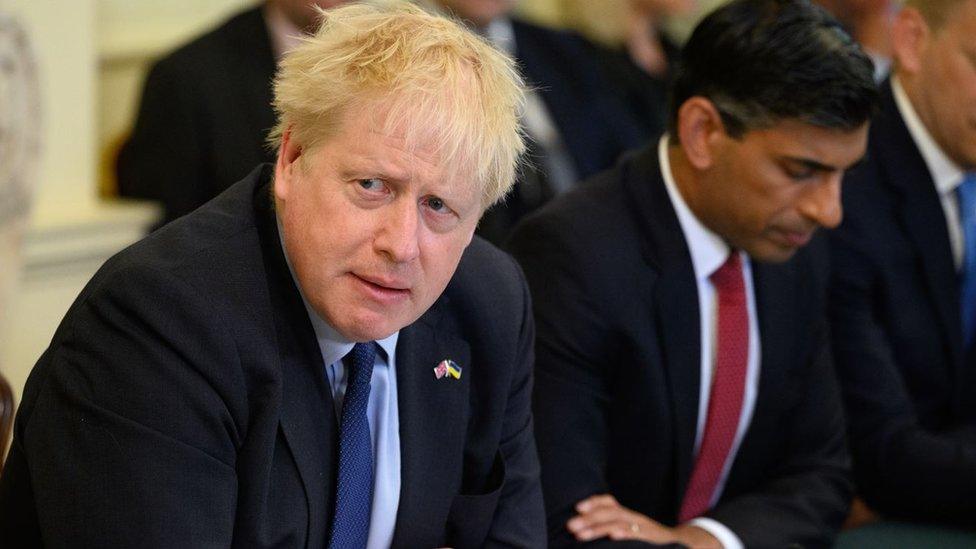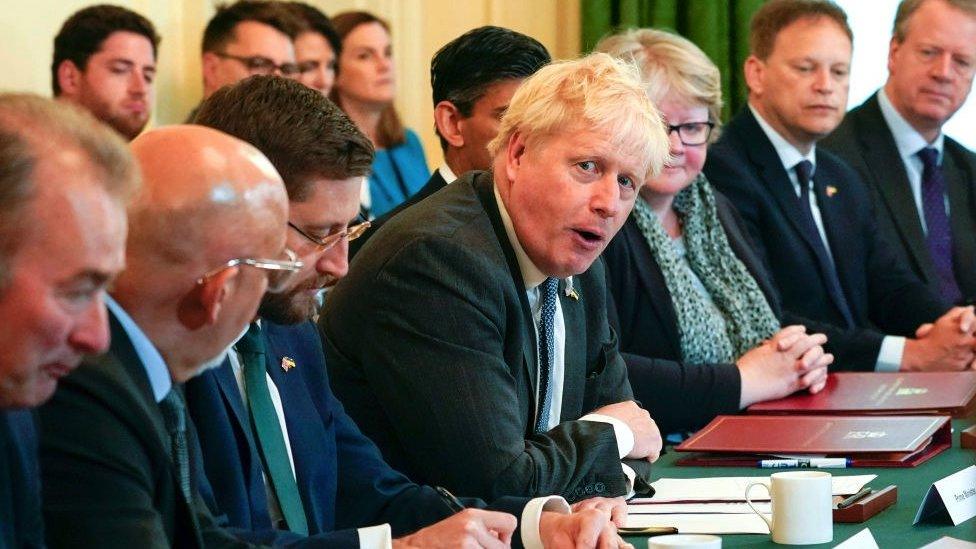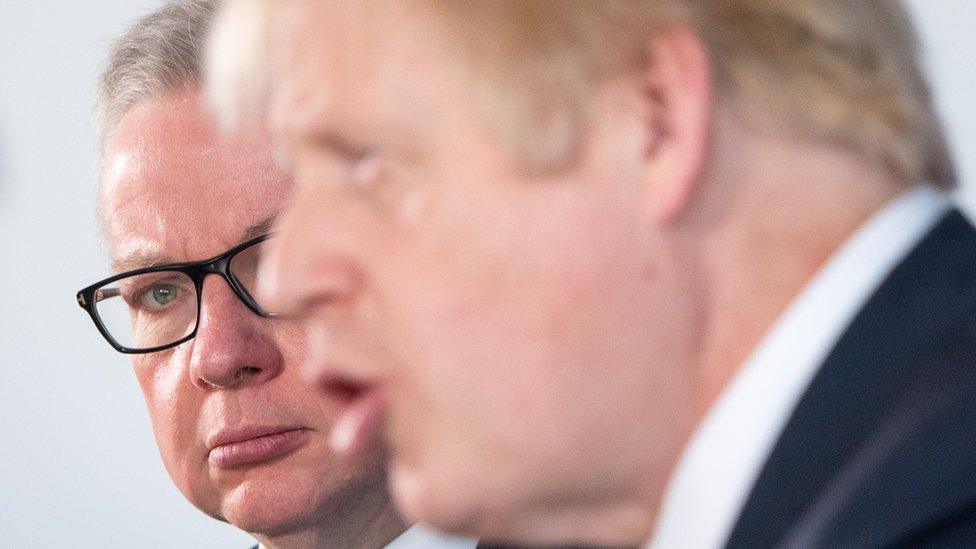Why did Rishi Sunak resign?
- Published

The key line in all the resignation letters released tonight is that the chancellor felt his approach to the economy was "fundamentally too different" to that of Boris Johnson.
The context here was the PM's plan for a joint speech with the chancellor as the anchor of a plan to show the government taking control of the cost of living crisis.
That speech was due next week. They could not agree its contents. In particular, the chancellor said the public is "ready to hear the truth" about the tough times ahead of us.
This echoes some comments made by the former Bank of England Governor Mervyn King that the government needed to level with the public about the fact that the inflation energy crisis has made the nation poorer.
The cost-of-living crisis means a series of incredibly difficult trade-offs for government to make in the coming months.
Public sector pay review bodies have begun to report back. The Treasury believes it is irresponsible even to be talking about pay claims matching the 9% inflation rate. And yet, a 10% rise in pensions is pencilled in for next year.
Government departments are facing rising costs to provide public services, but cash budgets are yet to be increased. Tax cuts are being promised, but only in two years' time, if borrowing is under control.
Fuel prices reach new records, but where did the 5p Budget reduction go? Domestic energy prices are heading even higher than predicted at the time of the chancellor's last cost of living package.
Personal tensions
Rishi Sunak was a crisis chancellor. He spent his time expanding the state, spending and levels of taxation, against his instincts, to deal with the pandemic and Ukraine crisis.
His signature policy - the furlough scheme - squarely succeeded in its primary aim, of preventing long-term unemployment from the pandemic lockdown.
When announced, there was no guarantee it would even function technically. It has helped keep unemployment levels very low, the shining light in a now shaky set of British economic figures.
Rishi Sunak, however, was keen to draw a line under that support, even as it had made him popular. He rolled back the pandemic increase in universal credit. The energy crisis was not a "whatever it takes" moment.
At Number 10, their instincts were to borrow more, tax less and support households more. Sunak wished to increase productivity, empower tech businesses and raise living standards.
Clearly, personal tensions also emerged. Some in Number 10 felt that Sunak backers had pushed too hard to oust the PM in January. Sunak's team felt the run of negative stories leaked about the chancellor's finances in the spring were an operation to kill his leadership chances.
Iron Chancellor
Without Mr Sunak, and with a new chancellor, the PM will find it easier to tax less, perhaps spend more and so borrow more. There is talk of cuts to VAT.
Some backers of the PM think that all the cost-of-living support has gone largely unnoticed and the government somehow needs to find a way to physically stop the energy price cap from going up a further £1,000.
But that comes against increasing market concern about the UK's growing trading deficit, a slump in sterling, and fears of recession.
It is exactly the sort of time a government might rely on having an Iron Chancellor, who can rein in his, or her, crisis-afflicted neighbour. But this may not be the likely direction of travel in Downing Street.
Related topics
- Published5 July 2022

- Published7 July 2022

- Published5 July 2022

